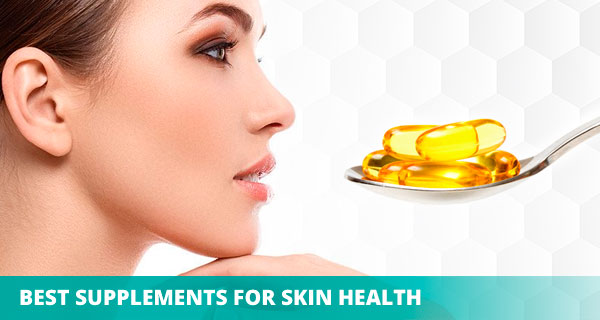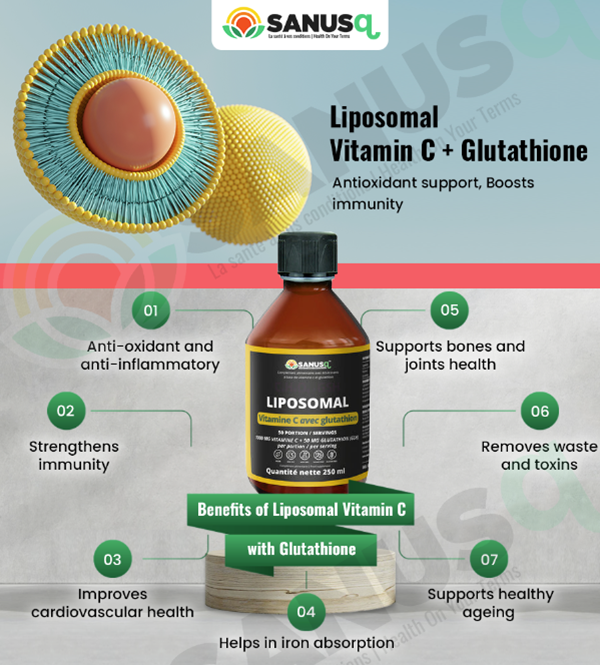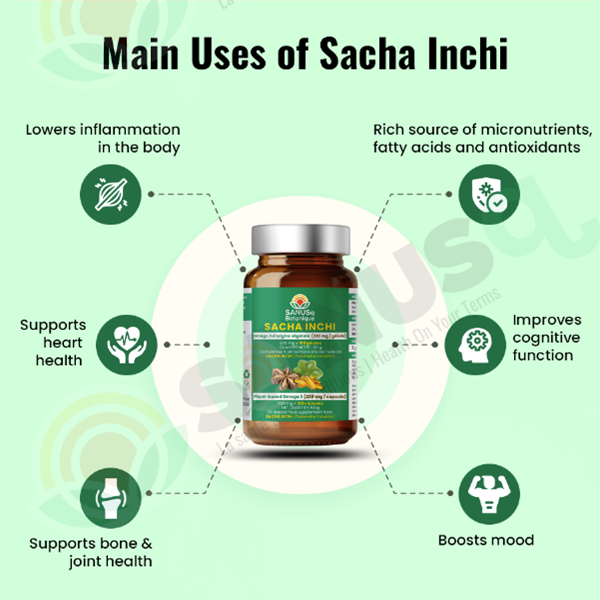Best Supplements for skin health (SQ-111)
Dull, dry skin? Wrinkles and fine lines? Uneven skin tone and dark spots? With age, these tell-tale signs of ageing are normal and expected.
Over the years your skin goes through a number of changes. You don’t make enough collagen and elastin, which means your skin is not as firm and elastic as it used to be. Your body can make its own antioxidants that protect your cells including your skin cells from oxidative damage caused by UV exposure and pollution. But this capacity takes a hit when you enter your twenties and thirties. In addition, your sebaceous glands produce less oil. This makes your skin look dry and less supple.
Years of UV exposure and declining levels of natural oils, collagen, elastin and internal antioxidants show up in the tell-tale signs of skin ageing that include fine lines, dryness, wrinkles and sunspots. There is little you can do to stop these signs from appearing.
What you can do, however, is to control outside factors that make your skin age faster than normal. Poor nutrition, sugar, chronic stress, drinking, smoking and inadequate sleep are detrimental to your skin health and appearance, causing premature ageing in your skin. These factors wreak havoc on your skin and trigger inflammation, resulting in the break-down of collagen and elastin and reduced renewal of skin cells. Your skin struggles to bounce back and hold moisture, giving rise to fine lines, wrinkles and dry skin. Dark spots and pigmentation issues are not far behind.
How can you protect your skin from premature ageing? What can you do to give your skin the lift it needs and leave it looking healthy, nourished and glowing for longer?
Daily cleansing, using a good moisturizer and sunscreen, eliminating refined sugar and sleeping well go a long way. However, what you eat makes a huge difference in keeping your skin healthy from inside out.
A clean, well-balanced diet provides all the vitamins, minerals and antioxidants that you need for a healthy, radiant skin. This also means supporting your skin health with antioxidants and collagen boosting supplements that are otherwise difficult to obtain from your daily diet.
In this article, we list out some top supplements for your skin health. What’s more, these supplements offer benefits that go beyond a healthy, beautiful skin. Let’s find out.
1. Vitamin C
Vitamin C, mostly known for its role in boosting immunity, is easily one of the best supplements for your skin health .
It is a powerful anti-oxidant and protects your skin from free radicals formed during exposure to UV rays and chemicals. Daily exposure to smoking, pollution, UV rays and other toxins reduces the amount of vitamin C in the body, making your skin more vulnerable to oxidative damage.
You also need vitamin C to make collagen. It works as an essential co-factor in the process of collagen synthesis and helps in its repair and maintenance.
Long-term exposure to UV rays results in the production of enzymes that damage collagen and other important structural proteins in your skin. This causes premature ageing of the skin accompanied by fine lines, wrinkles and depigmentation.
- Helps in healthy production and repair of collagen, keeping skin looking smooth and firm
- Protects against UV damage, prevents premature formation of wrinkles and fine lines
- Reduces the severity of sunburns
- Lowers inflammation; thus helpful in treating acne and rosacea
- Helps in wound healing [1]
Other health benefits of vitamin C include
- Boosts immunity and fights infections
- Helps absorb iron
- Reduces the risk of atherosclerosis; Supports heart health
- Keeps eyes healthy and lowers risk of cataracts and macular degeneration
- Supports joints and bone health
- Helps body deal with stress
- Protects against radiation exposure
What do most anti-ageing beauty products have in common? They all contain vitamin E – a fat-soluble, essential vitamin. In fact, vitamin E is not a single molecule but a group of naturally occurring compounds with unique antioxidant properties.
Your skin has its own arsenal of antioxidants that fight against free radicals and oxidative damage. And vitamin E, in the form of alpha-tocopherol, is one of the most abundant antioxidants you have in your tissues, ready to protect lipids (fats) in your skin cells from oxidative damage caused by chemicals, smoking, pollution and the sun’s damaging rays.
Vitamin E is also known to absorb UV light. In fact, research shows that vitamin E, when used with vitamin C, reduces the time it takes for your skin to become a sunburnt. This in no way implies that you can ditch your sunscreen. It only means that increasing your skin’s antioxidant content along with using a sunscreen will insure your skin better protection against the damage caused by the sun.
A randomized, double-blind, placebo-controlled trial, published in the Journal of Research in Medical Sciences, concluded that vitamin E can be immensely helpful in treating atopic dermatitis (AD). It concluded that “vitamin E can improve the symptoms and the quality of life in patients with AD. As vitamin E has no side effects with a dosage of 400 IU/day, it can be recommended for the treatment of AD.” [2]
You can get vitamin E from foods such as almonds, avocado, sunflower seeds, spinach, mustard greens and fish. Wheatgerm oil is one of the richest sources of vitamin E. Cold-pressed oils such as argan oil, coconut oil and olive oil are also a good source of vitamin E.
However, you may need to take vitamin E supplements or use topical vitamin E to improve skin functions and repair damage, especially as vitamin E levels in the skin tend to lower with age. What is more, even a quick exposure to the sun can reduce the levels of vitamin E and other antioxidants in your body, with your skin gasping for more.
Vitamin E in skin health
- Prevents sun-induced damage to skin
- Boosts collagen production
- Reduces appearance of fine lines and wrinkles
- Prevents age spots, dryness and flakiness in skin
- Reduces inflammation
- Promotes blood circulation in skin
- Improves wound healing and prevents the formation of keloids [3]
- Reduces risk of blood clots and coronary heart disease
- Boosts immune function
- Supports eye health and reduces the risk of age related macular degeneration (AMD)
- Makes hair strong and lustrous
- Maintains hormonal balance
Omega-3 fatty acids are one of the best anti-inflammatory substances out there and are great for your heart and brain health. Did you know these fats also keep you skin healthy, moist and wrinkle-free? You find omega 3s in walnuts, flaxseeds, fatty fish (salmon, mackerel and sardines) and fish oil supplements. Sacha inchi oil is another great, but lesser known, source of healthy omega 3s and 6s, especially for vegetarians.
A healthy balance of both omega 3 and omega 6 fatty acids is important for maintaining skin function and appearance. These fatty acids are an important component of your cell membranes, including those in your skin cells. Besides other functions, the fats provide structure and integrity to the cell membranes. Omega 3s also support the barrier function of your skin, by locking in the moisture, regulating oil production and keeping toxins and irritants out – giving you healthy and vibrant looking skin.
Omega 3 fatty acids also promote the production of enzymes and hormones that reduce inflammation in the body. That is why omega 3s can be a valuable tool in calming red, angry and inflamed skin.
If you are not getting enough omega 3 fatty acids from your diet or supplements, it is likely to make your skin lose moisture and elasticity. This means rough and dry skin, which is more vulnerable to damage and irritation. It will also trigger inflammation, giving rise to dry and itchy skin.
According to the Linus Pauling Institute, “dietary supplementation and topical application of certain omega-3 PUFAs attenuates UV-induced photodamage, extrinsic signs of skin aging, and inflammatory skin responses.”
Omega 3 fatty acids in skin health
- Keeps your skin moisturized and nourished from within
- Soothes inflammation in the body and prevent red itchy skin and frequent flare-ups
- Regulates oil production in skin glands, mitigating both dryness and acne break-outs
- Protects skin cells from sun-triggered damage and inflammation
- Strengthens cell membranes and forms a protective barrier against toxins and free radicals
- Significantly reduces your risk of heart disease
- Supports brain health and function
- May offer protection against dementia
- Protects eye health and reduces the risk of macular degeneration
- Reduces ADHD symptoms in children
4. Probiotics
Looking for a clear, radiant and healthy skin? Start with your gut.
Probiotics are good bacteria in your gut. These friendly bacteria keep bad ones under control and keep your immune system in top shape. You also need probiotics to help absorb certain nutrients. Basically by maintaining healthy gut flora, probiotics are responsible for our total well-being - and skin health is no exception.
Imbalance in the gut flora leads to leaky gut, where partially digested food particles, toxins and bad bacteria leaks into the bloodstream. This influx of toxins restricts the absorption of essential minerals and vitamins that are vital for your health. There is also an increased build-up of toxins in your cells and tissues and your body struggles to get rid of it. Eventually, all of this causes systemic inflammation. Fatigue, depression, autoimmune disorders, inflammatory bowel disease, headaches and thyroid disorders are all tied to poor gut health, leaky gut and inflammation.
There is also a connection between unhealthy gut and inflamed skin. Inflammation causes flare-ups in people with inflammatory skin conditions such as rosacea, acne or eczema. Supplements that can help prevent leaky gut and inflammation can not only help in treating these skin conditions but also chronic inflammatory disorders such as inflammatory bowel disease. And this is where probiotics can help. Kefir kombucha, sauerkraut, miso and yoghurt are some great choices if you are looking to restore your gut balance and skin radiance. But it is not possible to get all the probiotics you need from fermented foods. You may also want to take a good quality probiotic supplement from a reputed brand.
Probiotics in skin health
- Prevents inflammation and flare-ups in conditions like psoriasis, acne, rosacea or eczema.
- Keeps skin hydrated
- Prevents and controls skin damage caused by free radicals
- Protect wounds from infection
- Helps in digestion
- Helps absorb nutrients from digested food
- Gets rid of toxins
- Boosts immunity
- Keeps unhealthy bacteria, viruses and fungi in check
- Prevents and manages digestive disorders such as diarrhea, constipation, irritable bowel syndrome.
It is important to know the factors that affect your gut flora. Sugar, processed foods and long-term use of antibiotics are common offenders. Stress and inadequate sleep can also negatively influence the balance between the good and bad bacteria living in the gut.
Last but not the least, stay hydrated and avoid sugar
Drinking adequate amounts of water is important for your overall wellness, including your skin’s health and function. A dry, flaky skin is often a sign that you are severely dehydrated. More than keeping your skin well-hydrated, water helps maintain your skin health through many direct and indirect ways. It helps in digestion, flushes out toxins from your cells and improves blood circulation.
Coffee and tea do not count, but you can increase your fluid intake by consuming lots of fresh fruits and vegetables; for example, cucumbers and watermelons. These foods are also packed with vitamins, minerals and powerful antioxidants that nourish your skin from inside out and repair and improve collagen production, helping you achieve healthy, supple skin that is less prone to damage and is quick to repair.
If you need to single out one food item that can damage your skin like no other, it must be SUGAR. Why is sugar so bad for your skin? Sugar promotes the growth of bad bacteria in the gut, increases inflammation and results in the formation of advanced glycation end products or AGEs. Sugar binds to important proteins in the body and alters their chemical structure and function. This results in the formation of foreign proteins called AGEs that wrecks your skin health by damaging collagen.
Eating right and having a good skincare regime are essential when it comes to maintaining healthy skin. However, at times you might need a little push and that’s where these supplements for skin health can help.
Always consider consulting your health care professional before you start any dietary supplement, especially if you are considering a combination of two or more antioxidant supplements. It is possible they may interact with any drugs you may already be taking.
References:
- AC Carr et al. Vitamin C and Immune Function. Nutrients. 2017
- Jaffary et al. Effects of oral vitamin E on treatment of atopic dermatitis: A randomized controlled trial. J Res Med Sci. 2015
- Zampieri et al. A prospective study in children: Pre- and post-surgery use of vitamin E in surgical incisions. J Plast Reconstr Aesthet Surg. 2010
Disclaimer
Information on our websites, in our blogs and our emails are provided for informational purposes only, and have not been evaluated by the EMA, EFSA or FDA. It is not meant to substitute medical advice provided by your healthcare professional and is not intended to diagnose, treat, cure, or prevent any disease. Our products are intended for adults, 18 years of age and older. While the vitamins and supplements mentioned here have been shown to have various health benefits, it is important to remember that supplements and dietary changes should be considered as part of an overall health plan and not as a substitute for professional medical treatment. Only a qualified healthcare practitioner can provide personalized advice and treatment plans based on your individual health needs and medical history, and you should seek advice from your healthcare professional before taking product(s) if you are pregnant or nursing.



